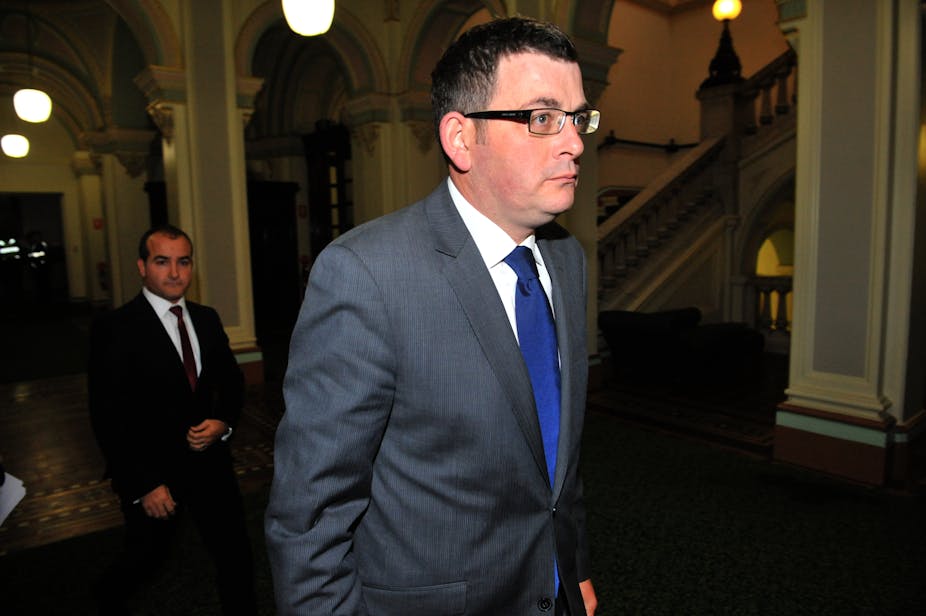After a night of political uncertainty, the Victorian Labor opposition has indicated it will move to have ex-Liberal MP Geoff Shaw expelled from parliament instead of accepting his offer of support for a motion of no confidence in the Napthine government.
The Conversation spoke with Monash University’s Greg Taylor, an expert on Victoria’s Constitution, to explain the constitutional implications of the developments in Victorian politics.
Is this a constitutional crisis we’re seeing in Victoria?
No, certainly not yet. There are permutations and combinations which could lead to a constitutional crisis – or at least to a constitutional conundrum – but we’re nowhere near that yet. At the very least you would have to have a successful motion of no confidence passed, and [opposition leader] Daniel Andrews last night was very reluctant to accept Geoff Shaw’s vote.
Essentially, Andrews seems to want to have his cake and eat it too. He wants a crisis and to talk up a crisis, but on the other hand he doesn’t want to bite the bullet and take Shaw’s vote. Until he does that, there will be no progress on anything.
What does the Victorian Constitution provide for, depending on how the politics proceeds?
One possible outcome is that nothing at all happens: that no motion of no confidence is moved, in which case nothing happens and we just continue on as before. If a motion of no confidence is moved it might fail.
If it succeeds then we could be in a bit of a difficulty in the sense that you would then have the same problem that we have now – a hung parliament, or a very nearly hung parliament – but the boot being on the other foot, with the Labor Party trying to get into office. What the Liberal Party would do then would be to ask their speaker to resign; that would then put the numbers on the floor back at 44-all, counting Shaw for the Labor Party.
That would be an interesting conundrum, and it would probably end up going in the direction of an early election. But the way things are going that seems very unlikely, because Andrews won’t take Shaw’s vote.
What is the role of the Victorian governor in this?
The role of the governor at the moment is absolutely nothing. The Crown doesn’t ride around the state looking for problems to solve, poking its nose in where it’s not being asked.
This is one of the major criticisms that has been made of [governor-general] Sir John Kerr in 1975 – namely that he intervened too quickly, as a result of which the Crown became dragged into political controversy without there being any need to do so.
The governor should not meet with the opposition leader and the premier in the hope of finding a solution by mediation to this alleged constitutional crisis. It’s quite proper for the governor to meet the opposition leader just to keep informed of the state of politics, but it’s not the role of the governor to go around the place, making a nuisance of himself or trying to be an uber-political fixer.
Further reading: Napthine government stares into the political abyss

